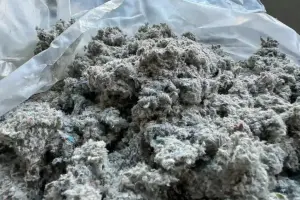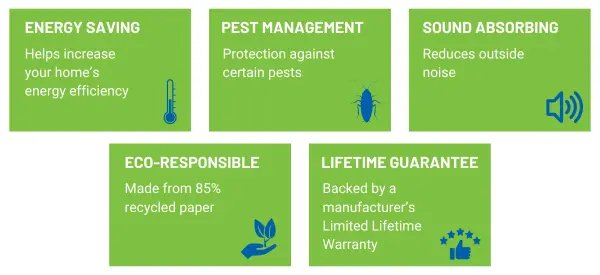Pest Control Attic Insulation
Serving Atlanta Metro | Columbus | Augusta | Savannah
 Attic insulation plays an important role in keeping your home comfortable and energy-efficient and even dampens outside sound. But did you know it can also be part of your comprehensive pest control plan? At Active Pest Control, we use a specialized type of attic insulation that handles all of these tasks.
Attic insulation plays an important role in keeping your home comfortable and energy-efficient and even dampens outside sound. But did you know it can also be part of your comprehensive pest control plan? At Active Pest Control, we use a specialized type of attic insulation that handles all of these tasks.
The best part? You don’t need to replace your existing insulation to benefit from ours. Active Pest Control’s eco-responsible attic insulation could stop your next infestation before it can even start, saving you time and money.
How Does Pest Control Insulation Work?
Attic insulation is difficult for pests to crawl through, but that’s not where the protection ends. Active Pest Control’s insulation contains an additive that is deadly to many different types of bugs – including the following:
- Ants
- Booklice
- Centipedes
- Crickets
- Darkling beetles
- Earwigs
- Roaches
- Silverfish
- Sow bug
Your attic might not be the first place you think of when you’re considering potential pest entry points, but it can actually be the ideal home for invading insects. Attics are out of the way, people don’t spend a lot of time there, and they can provide easy access to the rest of the home. By adding an extra layer of protection, pest control insulation could make it that much more difficult for pests to move in.
How is Active Pest Control Insulation Different from Normal Insulation?
For starters, our insulation isn’t made of fiberglass – it’s made of cellulose and 85% recycled paper, and it is treated with boric acid. Borate is a naturally-occurring mineral that is commonly found in household cleaners, and in these quantities, it is not harmful to people or animals. In fact, even rodents won’t be affected by boric acid in the amounts used here; you will need other treatments if you’re dealing with a rodent problem. However, it’s very effective against bugs.
Say Goodbye to Pest Problems for Good!
How Our Insulation Process Works
Each and every one of Active Pest Control’s services is customized to your needs, so no two services will be exactly the same. Broadly speaking, though, we go through the following steps every time:
- Inspection. All of our services start with a comprehensive inspection of the area. We look for existing infestations, potential weak points in your structure, and anything else that might leave you vulnerable to future infestations.
- Preparation. If we need to perform any additional services before we can start, we’ll let you know. Otherwise, this is when we prep your attic for the new insulation.
- Installation. Our insulation is “blown-in,” meaning it’s essentially sprayed over the surface with a hose. This allows for efficient application in a custom fit.
- It’s that simple! Once the insulation is done, we add any finishing touches and then clean up and clear out.
We can also help you build an ongoing pest control plan to keep your home safe from pests in the future. Complete pest control is a multi-part process, and Active Pest Control is here to help with every single one of them.
5 Benefits of Active Pest Control’s Attic Insulation

Licensed Pest Control Attic Insulation in Georgia
The Active Pest Control team has been working with Georgia homes and businesses for over 45 years. As a company local to the Georgia area, we know the ins and outs of local pests and how to best handle them. Our pest control-specialized attic insulation is just one more way we help protect your home from the dangers of pests. Whether you’re dealing with a full-blown infestation or you want to get ahead of the next one, we can help!
Give us a call to get started with a free quote!
Back to Residential Pest ControlPest Control Attic Insulation in Georgia
Serving Your Pest Needs for Over 35 Years Across Georgia
